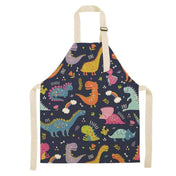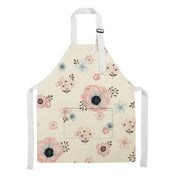Every parent wants their little ones to be happy and confident in themselves. After all, having good self-esteem equips children with better problem-solving skills – whether it’s trying out the swing at the local playground for the first time, learning new concepts at pre-school like numbers and letters, or even learning to sort blocks and shapes according to size.
However, little hearts have so much to learn.
Along with the fine and gross motor skill exercises and activities they have to master, they also need to have the skills to be able to express their emotions. This can be especially hard if they are unsure of how to channel what they are feeling at a precise moment, which, in turn, can give their confidence a big knock.
Luckily, one of the best ways to build confidence in your little ones and boost their self-esteem is through fun, educational play. In this blog, we share some of our favourite activities that will help your children with their physical and emotional development.
#1. Climbing (and sliding) to confidence

Many pre-schools and primary schools have jungle gyms and monkey bars for the kids to climb up and have loads of playtime fun as they become little adventurers exploring their “castles” or “pirate ships”.
However, when first introduced to these play areas, children can be a little hesitant, especially if they are not confident climbers.
Mum and dad can steer the course to get them comfortable with the concepts of climbing and holding on to climbing equipment with beginner climbing frames and slides. These items will help them improve their grip and grow their confidence to navigate climbing equipment.
When they associate these activities with fun and adventure, fear and low self-esteem will soon take a backseat as they become more comfortable with challenging activities.
In the end, it is showing little ones how easy something can become when they allow themselves to take that all-important first step. Once they have reached this confidence, they will also become more independent and sure of themselves.
#2. Affirmation of emotions through flash and play cards

When it comes to little ones’ feelings and self-esteem, there are two important sides that parents need to be mindful of.
On the one hand, they need to understand that little ones can struggle to give meaning to their emotions – for instance, when they are sad, they might battle constructively expressing this.
On the other hand, they might be craving positive affirmations to encourage them to be more confident in life.
To open up the conversation regarding feelings, parents can use emotional self-regulation cards or emotion recognition blocks that are designed with emotion faces to give greater meaning to discussions involving feelings, emotions and behaviours. Together, they can explore emotions in a fun and educational way with their little ones and take away the fear and uncertainty that comes with expressing feelings.
A set of toddler affirmation cards is another beautiful playtime aid that will inspire little ones’ confidence, self-worth and positive self-talk. It also provides the perfect opportunity for parents to inspire their children by talking about the unique characteristics that make them who they are – they are, after all, one in a million!
Boost their confidence with positive feedback and see how your little ones shine!
Together with educational play activities, it is important to give little ones positive feedback that is authentic and true to further boost their confidence.
Do not give false praise, but give them credit when they achieve a milestone.
It can be as simple as getting onto their little climbing frame or being able to put in words how they are feeling. Keep it up, and you will see an improvement in your child’s self-esteem!



